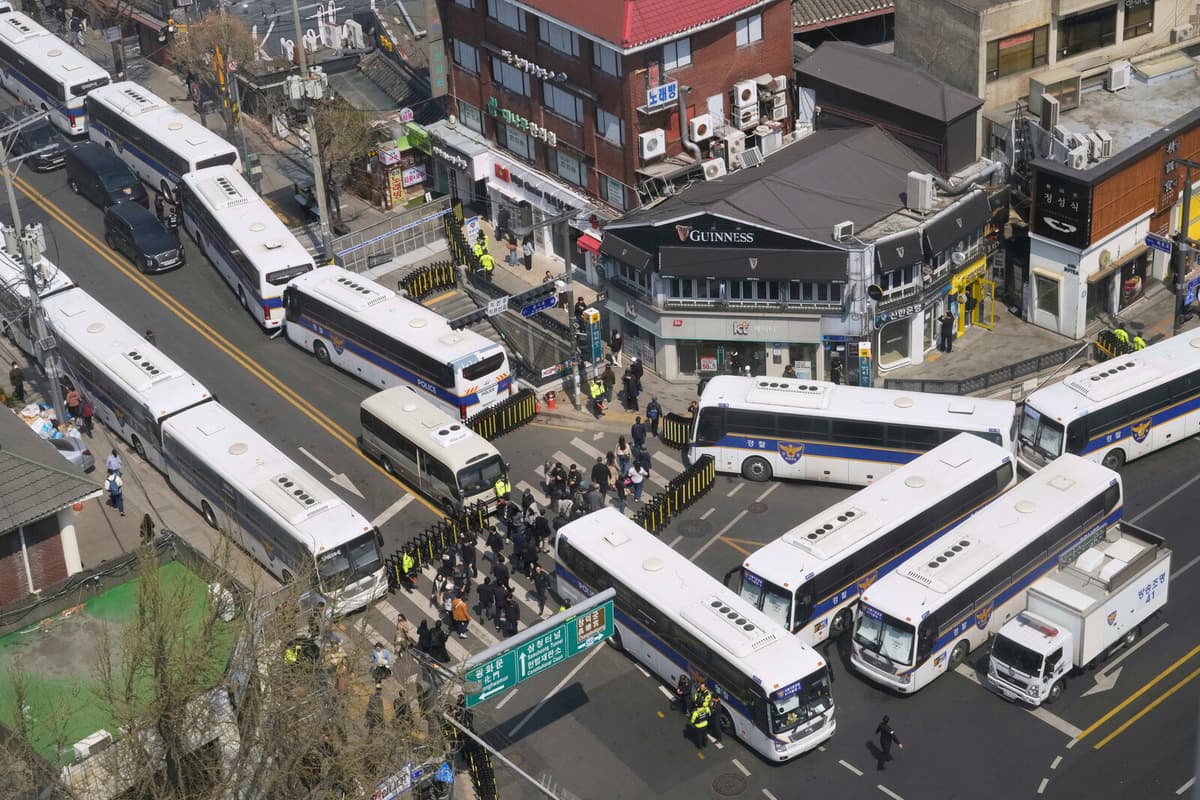The security presence is enormous around the court in northern Seoul, where eight judges at 4 am on Friday morning Swedish time will announce their verdict on Yoon Suk-Yeol. Either he will be found guilty after the impeachment process that has been ongoing for several months, and be permanently removed from office. Or he will be declared innocent, which would mean he re-enters as the country's head of state.
The verdict will be the culmination of four extremely dramatic months in the world's 12th largest economy. It was on December 3 that Yoon shocked both South Korea and the world by declaring martial law, and claiming that the country must be protected from a "communist" opposition that would sell it out to archenemy North Korea.
The martial law was lifted after a few hours with a vote of 190 to zero in parliament, which managed to assemble despite Yoon ordering police and military to stop them.
Remember 2017
But he then showed that he has significant support, when the presidential guard and his supporters maintained a human wall around the 64-year-old's residence for several weeks. It wasn't until mid-January that he could be arrested.
Regardless of the outcome, large and potentially violent demonstrations are expected, a scenario the country's 50 million inhabitants have relatively fresh memories of. As recently as 2017, deadly riots broke out in connection with the then-impeached President Park Geun-Hye being sentenced in the impeachment trial.
So now the authorities are taking no risks. In an operation called "sweeping", the area around the court in Seoul has been completely sealed off, while hundreds of buses have been set up as barriers on the streets.
Schools, embassies, offices, and tourist attractions in the vicinity are keeping closed, report media from the capital.
Can be sentenced to death
The question is also how definitive this conclusion will be for the country that has been described as "leaderless" during these four months. Parallel to the impeachment trial, Yoon has also been prosecuted in a regular criminal case. There, he risks life imprisonment or even the death penalty if he is found guilty of rebellion.
But for now, all focus is on the constitutional court, whose words will be weighed on a gold scale by public opinion.
It will be difficult to get both sides to accept the verdict, says expert Hong Sung-Gul at Kookmin University to news agency AFP.
There is a great risk that even worse chaos awaits.






